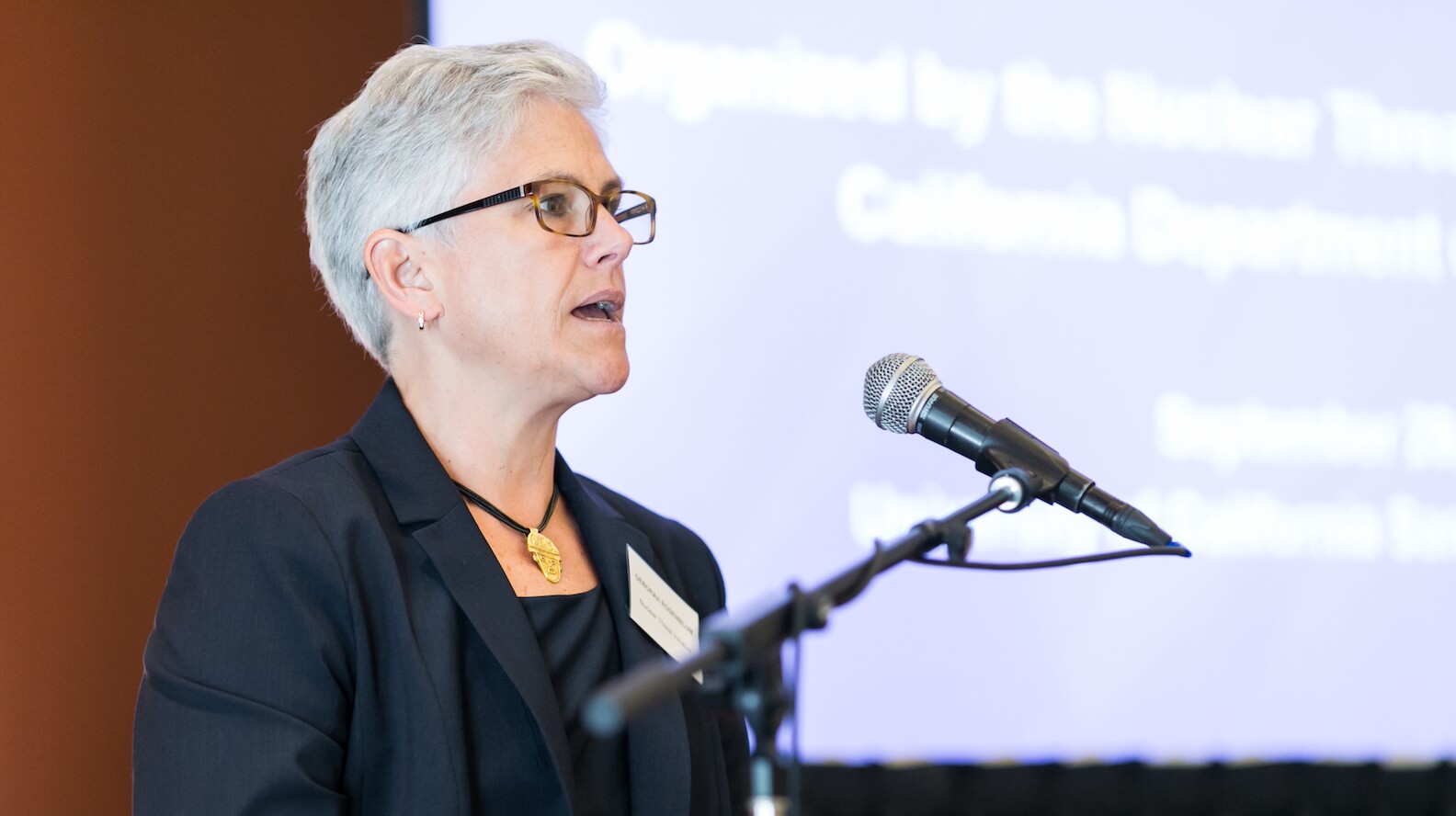
Guest op-ed from Deborah Rosenblum, Executive Vice President, Nuclear Threat Initiative. She will be holding an event Thursday, 11/20 at Levitt Hall at Drake University, noon to 1:00 PM.
For nearly a half-century, the world’s nuclear superpowers have been bound by a set of agreements reducing and limiting the size of their nuclear arsenals. These agreements between the United States and Russia formed the bedrock of global security and stability for decades – but they are crumbling fast.
Today, there is only one left: the New Strategic Arms Reduction Treaty (New START), which took effect in 2011 and limits each country’s deployed strategic nuclear warheads and the missiles and bombers that can deliver them to their targets.
This important treaty is set to expire in February 2021, just weeks after the next presidential inauguration – and if it does, the world will be without the last remaining constraint against a new nuclear arms race. The United States also would lose a critical window into Russia’s nuclear forces through the on-site inspections and data exchanges required by the treaty.
[inline-ad id=”1″]
The treaty includes a provision that says it can be extended for up to five years if both sides agree – and Presidents Donald Trump and Vladimir Putin should go ahead and do that now. It’s particularly important at a time when relations between our countries are strained, and nuclear risks are rising.
In addition, our elected officials, candidates for political office, the news media, and voters should be discussing and debating the need to reduce global nuclear risks and how to do it. Unfortunately, nuclear policy has not been a front-burner issue in this presidential campaign.
But it should be—and voters should demand it.
As we head into the thick of the campaign season, the Nuclear Threat Initiative (NTI) is joining a broader community of organizations and individuals that are raising the volume on these issues and demanding that our concerns about nuclear security are heard and addressed. The Union of Concerned Scientists, Beyond the Bomb, and Global Zero and their members are all engaging the public on these important issues.
[inline-ad id=”2″]
We can make a difference.
NTI reached out to voters in 2004 with urgent concerns about the threat of nuclear terrorism. Thanks to the efforts of voters in Iowa and other states, both presidential candidates named nuclear terrorism as the biggest threat to the United States. And it became a national security priority.
Since then, 23 countries have eliminated the kind of nuclear materials that could be used to build bombs. Thanks to U.S. leadership, many more countries around the world have met commitments to secure those materials and have signed on to key agreements. We need strong U.S. leadership to reduce global nuclear threats.
Thanks to voters like you, we helped make the world a safer place to live. We can do it again.
[inline-ad id=”0″]
by Deborah Rosenblum
Posted 11/20/19
Deborah Rosenblum is the executive vice president of the Nuclear Threat Initiative (NTI), an organization that works to prevent catastrophic attacks with weapons of mass destruction and disruption—nuclear, biological, radiological, chemical, and cyber. Prior to NTI, Rosenblum served for 12 years in senior positions with the U.S. Department of Defense, in the areas of homeland defense, peacekeeping operations and support, nuclear forces, and counter-proliferation policy.

Iowa Republicans make outlawing gay marriage key 2024 campaign priority
Iowa Republicans have made outlawing gay marriage a key goal in their 2024 party platform. During the Iowa GOP’s 2024 state convention on Saturday,...

Department of Justice says Iowa immigration law violates US Constitution
If Iowa doesn’t suspend the enforcement of its new immigration law by May 7, the state could face a federal lawsuit, according to the Des Moines...

Rushing: Iowa State president said the quiet part out loud
I want to thank Iowa State University President Wendy Wintersteen for doing us all a favor by finally saying the quiet part out loud: all the...

Iowa sets aside almost $180 million for year two of voucher program
Iowa has committed nearly $180 million in taxpayer funds to support private school tuition in the 2024-25 school year, which is almost $50 million...

Kalbach: Immediate action needed on corporate ag pollution
Iowa agriculture has undergone substantial changes over the past 40 years. We see it all around us. Rather than crops and livestock being raised on...

VIDEO: Jochum calls Gov. Reynolds’ summer meal program a ‘hunger game’
Iowa Gov. Reynolds announced a competitive $900,000 grant program to feed Iowa children over the summer, months after she declined $29 million in...




